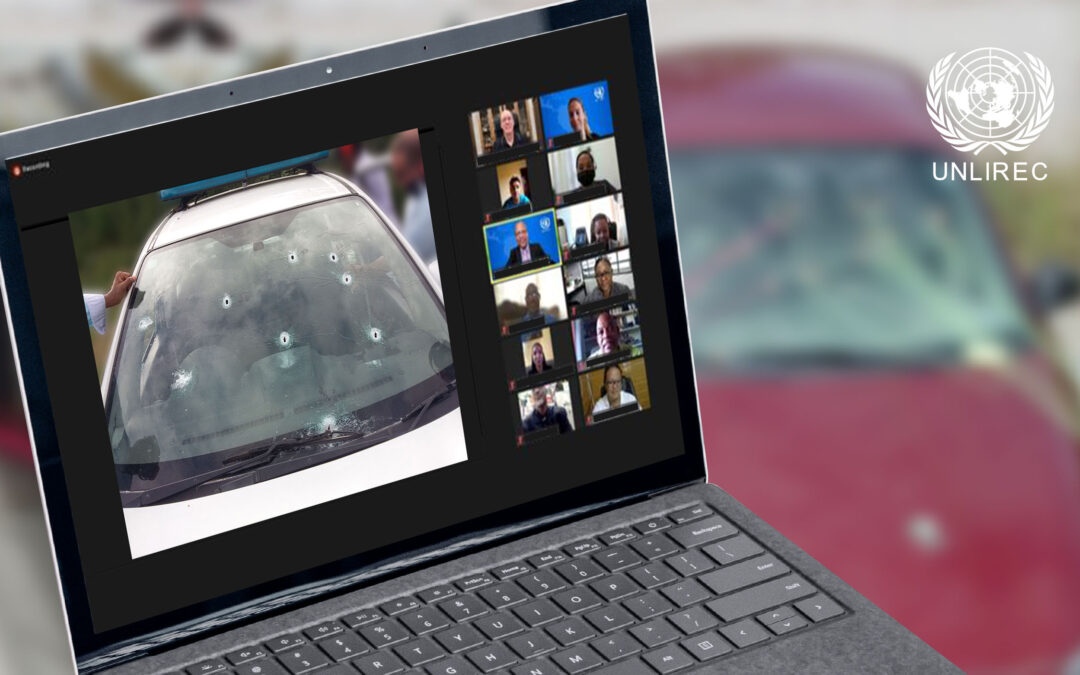On 30 June 2022, sixty-six officials from eleven Caribbean States participated in the “Introduction to Shooting Incident Reconstruction Webinar” delivered by the United Nations Regional Centre for Peace, Disarmament and Development in Latin America and the Caribbean (UNLIREC). Officials from Ministries of National Security, Police Forces, Forensic Laboratories and Defence Forces participated.
The introductory webinar sought to familiarize the participants on several topics including the collection and analysis of crime scene evidence, bullet impact analysis, sequencing gunshots on glass and distance determination of gunshots.
The high rates of armed violence as well as the proliferation of illicit firearms are major problems in the Caribbean, hence specialists in the region continue to build their capacity to deal with both issues.
The webinar contributes to the implementation of Goal 2 of the Caribbean Firearms Roadmap, “to reduce the illicit flow of firearms and ammunition into, within and beyond the region” and Goal 3, Bolster law enforcement capacity to combat illicit firearms and ammunition trafficking and their illicit possession and misuse, and ammunition, and ultimately reducing firearms-related crimes and armed violence in the Caribbean.
What is crime scene reconstruction? The reconstruction of shooting crime scenes relies upon the careful examination and processing of a scene for all pertinent physical evidence including defects and damage caused by projectiles. The observations of impact sites can provide investigators with information about the projectile, firearm, intermediate objects in the path of the projectile, direction of projectile travel, order of shots and other information. Reconstructing shooting crime scenes assists states, and their crime scene investigators, to identify, reconstruct, and document projectile flight paths (trajectories), based on established impact marks.
This activity was funded by the Government of the United States of America and contributes to the implementation of international disarmament and non-proliferation instruments, in particular, the 2001 UN Programme of Action on Small Arms.
UNLIREC, as the regional centre of the UN Office of Disarmament Affairs, seeks to advance the cause of practical disarmament in Latin America and the Caribbean as part of its commitment to support Member States.

